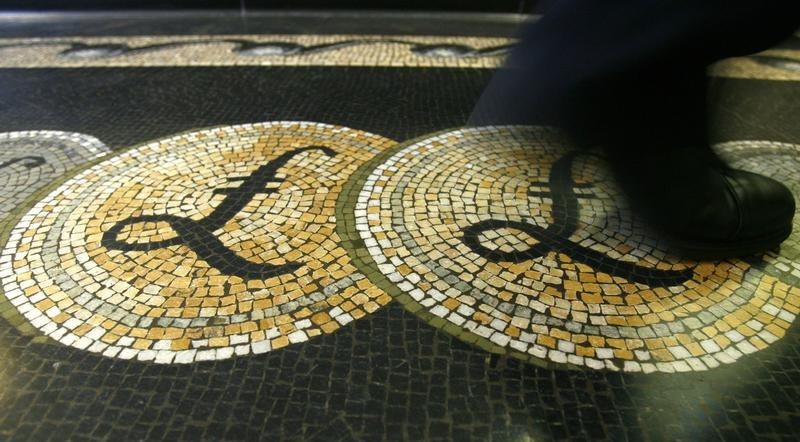Investing.com - The pound jumped to session highs on Tuesday after Bank of England Governor Mark Carney said the time for rate increases is moving closer, in testimony to the Treasury Committee in Westminster.
GBP/USD was up 0.67% to 1.5585 from around 1.5475 earlier.
Sterling was boosted after BoE Governor Carney said that the central bank was moving closer to hiking interest rates.
"The point at which interest rates may begin to rise is moving closer with the performance of the economy, consistent growth above trend, a firming in domestic costs, counter balanced somewhat by disinflation imported from abroad," Carney said.
He reiterated that rate hikes when they do come will be gradual.
The remarks came after data earlier in the day showing that that U.K. consumer prices were flat in June, falling back towards the lowest rate on record.
The Office for National Statistics said the annual rate of consumer price inflation was flat last month, down from 0.1% in May. Analyst had expected a reading of 0.1%.
Consumer prices were also flat from a month earlier, below estimates for 0.1% increase.
Core inflation, which strips out price rises in energy, food, alcohol and tobacco slowed to 0.8%, the lowest level since March 2001 from 0.9% in May.
The BoE has said it expects inflation, which fell below zero in April for the first time in more than 50 years, to pick up later this year as the effects of falling oil and food prices fade.
Carney also warned MPs that it will be very hard to implement the Greek bailout deal.
“There are big execution risks....and Greece’s debts are not sustainable in their current form,” he warned.
The pound was also higher against the euro, with EUR/GBP down 0.34% to 0.7077 from 0.7125 earlier.
The euro remained on the defensive as investors waited to see if the Greek parliament would support harsh austerity measures demanded by the country’s creditors in exchange for a deal to avoid financial collapse.
Greek Prime Minister Alexis Tsipras was to meet with MP's on Tuesday, but faced an uphill battle to win support for a third bailout deal offered by the country’s creditors.
Four pieces of legislation must be passed by the end of the day on Wednesday, including pension and sales tax reforms.
Meanwhile, data on Tuesday showed that German economic sentiment deteriorated to the lowest level in eight months in July as concerns over Greece weighed.
The ZEW Centre for Economic Research said that its index of German economic sentiment fell to 29.7 this month from 31.5 in June. Analysts had expected the index to tick down to 29.0.
